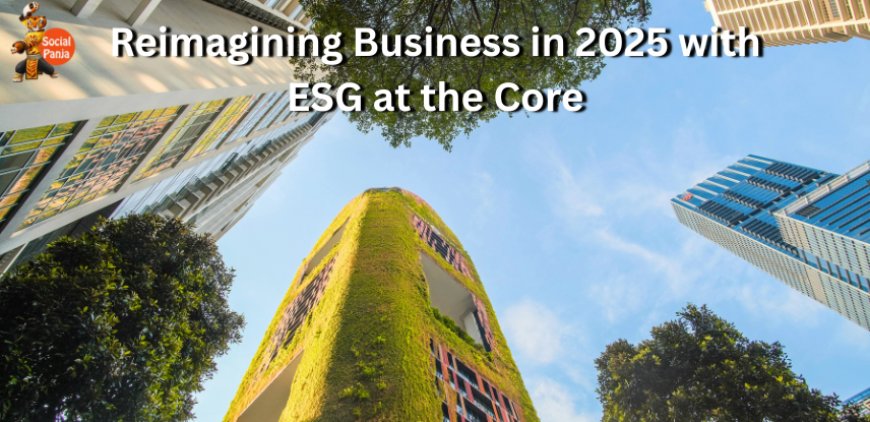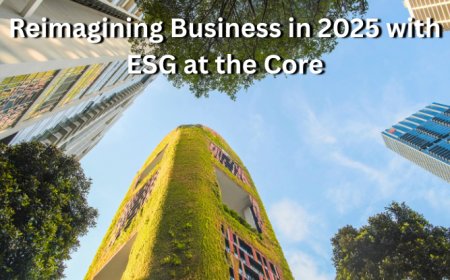Reimagining Business in 2025 with ESG at the Core
In 2025, ESG drives business strategy, innovation, and accountability. Learn how companies align purpose with profit in a rapidly evolving economy.

As the global conversation around climate-conscious companies, corporate social responsibility, and ethical business practices intensifies, businesses in 2025 are no longer treating sustainability in business as a side initiative. Environmental, Social, and Governance (ESG) strategy has become core to business operations—shaping everything from investor relations to customer loyalty and global supply chain decisions. Today’s companies are expected to show transparency, accountability, and meaningful action around their carbon footprint reduction and social responsibility goals.
ESG Is No Longer Optional
In 2025, ESG compliance is a business imperative. Governments and regulatory bodies now require detailed ESG reporting across industries, compelling organizations to adopt measurable frameworks that assess their environmental and social impact. These business sustainability trends are not just about regulation—they’re also market-driven. Investors are prioritizing ESG metrics when funding ventures, and modern consumers are choosing brands with ethical business practices and a strong environmental social governance stance.
Sustainable Innovation and Green Products
Sustainable innovation is no longer a buzzword—it’s the cornerstone of competitive advantage. Companies are redesigning their operations around eco-friendly products, zero-waste manufacturing, and renewable energy usage. Whether it’s green business practices in technology or circular economy models in consumer goods, forward-thinking businesses are embedding sustainability in business strategy. Both startups and large enterprises are embracing climate-forward solutions to align profitability with environmental values.
ESG and Stakeholder Capitalism
The rise of stakeholder capitalism signals a broader shift in how success is measured. Companies are increasingly answerable to communities, workers, and the environment in addition to shareholders. ESG goals are becoming embedded into company culture, supplier relationships, and even executive performance metrics. This human-centered approach reflects a deeper commitment to corporate social responsibility and ethical leadership, creating long-term value and resilience.
Data-Driven ESG Reporting and Accountability
A major factor in the ESG revolution is technology. Companies are deploying blockchain, AI, and cloud analytics for transparent ESG reporting. With real-time dashboards, businesses can monitor carbon footprint reduction, track diversity and inclusion efforts, and assess ethical sourcing in their supply chains. These innovations in sustainable business practices are helping organizations gain credibility and trust with stakeholders while supporting a broader future of work aligned with values and impact.
Conclusion: ESG Is the Future of Business
By 2025, corporate sustainability is a fundamental component of contemporary enterprise and is no longer a choice.. Companies that prioritize ESG strategy, adopt ethical business practices, and commit to measurable carbon footprint reduction are building brands that last. As corporate social responsibility and stakeholder capitalism continue to shape the future of work, only those businesses that lead with purpose, transparency, and innovation will thrive in the evolving digital economy.
What's Your Reaction?


















































